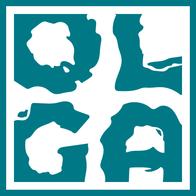Overview
Module 1: Sustainable Wood Use in Semi-Natural Watercourses
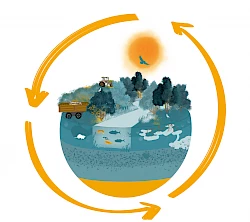
Smaller watercourses are important landscape elements in urban and rural areas. They provide a range of ecosystem services, such as climate regulation, water and flood protection, recreation or biodiversity conservation. However, according to the EU Water Framework Directive, only 6.7% of surface waters are in good condition. OLGA is therefore researching how the ecological status of small watercourses can be improved by planting woody structures near the banks.
What are the ecosystem functions of agricultural trees and shrubs in watercourses, particularly in terms of water protection, climate protection and flood control?
What economic perspectives and marketing potentials arise here for farmers and landowners and how can agricultural woods become better known as an energy resource and increase the share of renewable energies in the energy mix in the long term?
Module 2: Biodiversity and regional value chains
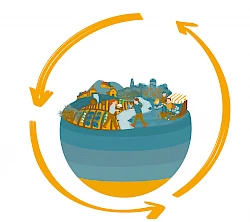
We bring together stakeholders from the cultivation, processing, marketing and consumption of regional foods in order to establish and further develop regional value chains. Through various event formats, the professional public as well as citizens from Dresden and the neighbouring districts are informed about and involved in regionally sustainable nutrition.
Where can regional value creation cycles be created or optimised, actors along the value chain be networked and general cooperation structures for the production, processing, marketing and consumption of regional products, especially pulses, be created or supported?
What regional co-operation and financing models are needed to ensure that regional businesses remain viable in the long term?
How can public awareness of regional products in the agricultural and food sector be increased in the long term?
Module 3: Participation and Citizen Science
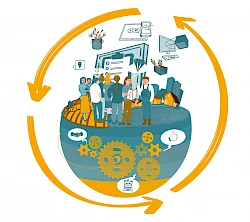
OLGA promotes the application of participatory elements in the discussion and design of sustainable land use along water streams and on agricultural land and in decision-making in local and regional planning processes. The testing and evaluation of Citizen Science projects for the participation of the public in processes and decisions for a sustainable land use and regional sustainable nutrition in the Dresden region are the focus of this module. How can citizens be motivated and qualified to participate? Appropriate qualification offers are designed, Citizen Science processes are evaluated and researched, especially with regard to the attitude and motivation of citizens to participate.
Module 4: Regional Integration and Project Management
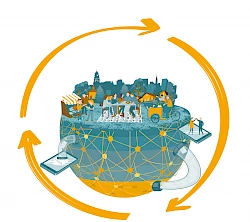
OLGA is looking for new urban-rural partnerships of municipalities, districts, associations, companies and encourages the population to participate in regional development processes on the topics of land use, regionally sustainable nutrition, regenerative energy production and in the design of their immediate living space in town and country. In close cooperation with all relevant actors, a concept with recommendations for action and requirements for a regional cooperation structure will be developed, which will take care of the development, moderation and stabilisation of urban-rural cooperation in the Dresden region.
